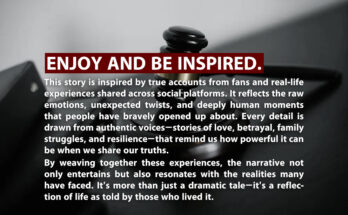I went on a date with a woman who, from the moment we sat down, only talked about her ex. Not just vague references—she dove into every detail of their breakup, the arguments, the aftermath, and how it still haunted her. I tried gently steering the conversation elsewhere, but she refused to budge. It was like she’d pressed play on a heartbreak documentary and I was the captive audience. The kicker? This breakup happened when she was 22. She’s 35 now. I sat there sipping my drink, nodding politely, wondering how I’d become part of a story that ended over a decade ago.
I asked about her hobbies, her work, anything to shift gears. She’d answer briefly, then circle back to him. “He never liked my cooking,” she said, staring into her wine. “He hated my dog.” I didn’t know what to say. I wasn’t judging her pain—I’ve had my own—but the intensity felt frozen in time. It wasn’t just nostalgia. It was fixation. I realized I wasn’t on a date. I was sitting in the emotional waiting room of a relationship that had long since closed its doors.
At one point, I asked if she’d dated anyone since. She shrugged. “A few,” she said, “but none like him.” That sealed it. She wasn’t looking for connection—she was looking for a witness. Someone to validate the heartbreak she hadn’t let go of. I felt sad for her, but also deeply out of place. I’d come hoping to meet someone new. Instead, I met a ghost. And I wasn’t sure she even saw me sitting across from her.
I excused myself after the second drink, politely but firmly. She barely reacted. I think she was still mid-monologue about the time he forgot her birthday. I paid my half, wished her well, and walked out into the night feeling strangely relieved. Not because the date was over, but because I’d escaped a time loop. I didn’t need to be anyone’s emotional echo chamber. I wanted something present, something real. And that night reminded me how important it is to heal before inviting someone new in.
Later, I told a friend about it, and we laughed—not at her, but at the surrealness of it all. Thirteen years is a long time to carry someone’s absence like a badge. I hope she finds peace. I really do. But I also hope she learns that healing isn’t about retelling the pain—it’s about releasing it. And maybe one day, she’ll sit across from someone and talk about her dreams instead of her damage.
So here’s to the dates that teach us what we don’t want. To the stories we outgrow, and the people still living in them. To choosing presence over nostalgia, and connection over catharsis. And to remembering that sometimes, the best thing you can do is walk away—and leave the past where it belongs.


